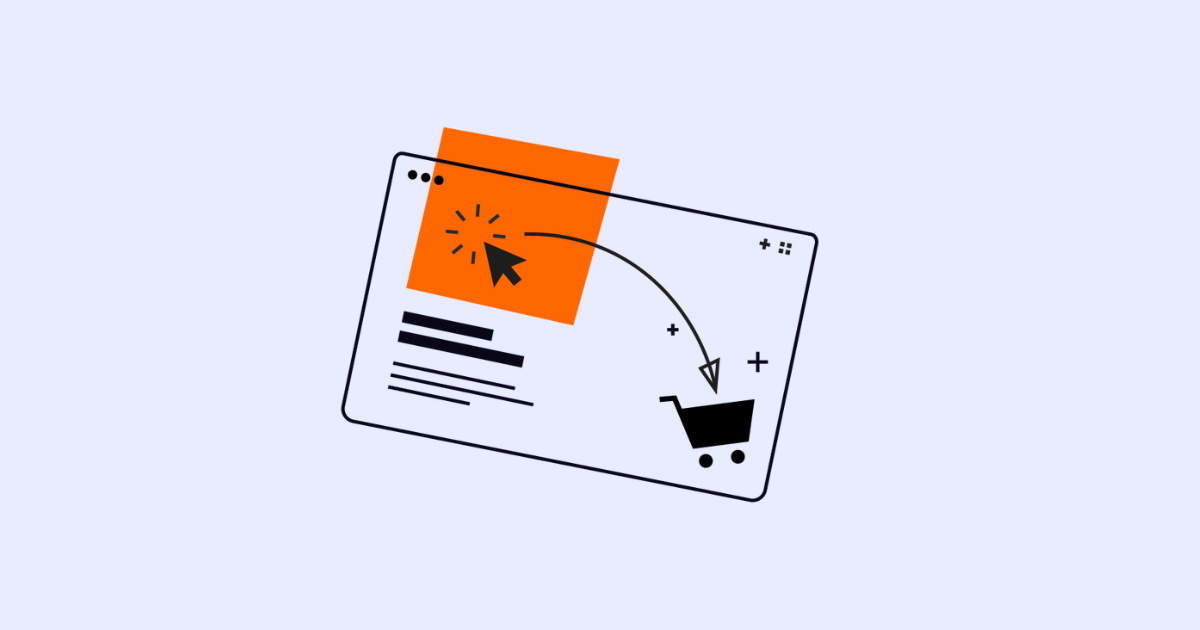Paid Search & Social
Segment low Funnel PPC keywords & ensure budgets are prioritised towards them
For business at the frontlines of this downturn, we’ve noticed that despite receiving a drop in conversions you are actually receiving increases in traffic. This is because there is uncertainty in the markets now and people are information hungry. They are not looking to purchase goods and services necessarily, but looking to understand more about what is and is not available.
As such if you are running a PPC campaign it is more important than ever to ensure you have dedicated budgets towards informational related keywords and purchase-related keywords. These should be clearly categorised and given their own budgets. At a time like this, you want to ensure that most of your budgets are going towards low funnel keywords that can generate revenue.
Identify purchasers from information seekers using clicks events and GA audiences
Following from the first point, another suggestion is to not provide information that users seek directly on your homepage. Rather make it clear you have this information, but then ask the user to press a button or link to access this info. Once they have done this then you can create a click event and segment these people in Google Analytics into an audience of ‘information seekers’. You can then ensure in future you do not continue to target these people with an exclusion list.
Invest in Google Shopping & product campaigns
More people at home means more shopping. The best way to advertise e-commerce related products is through shopping campaigns. This is good news for e-commerce retailers. People have to avoid stores and public spaces, yet they still need everyday products and ways to fill their time at home. Online shopping may be the only way to receive products in many locations.
If your an e-commerce store consider shifting PPC budget to campaigns that generate a positive ROI, which will likely be shopping & low funnel campaigns.
Watch CPC’s closely
While your business might be suffering, it is probably that others in your industry are as well. Keep a close eye on CPC’s. As competitors drop out of the market, this means there are fewer people bidding in the auctions and therefore CPC’s will drop. This could be a great time to build your audience lists with the discounts in CPC’s.
Digital Strategy
Make use of all available assistance
In these uncertain and unprecedented times businesses large and small are affected. Thousands of jobs will be lost and governments and ‘big business’ are aware of this. One great example of this is Facebook offering $100m in cash grants and ad credits assistance to qualifying businesses. This will be available for 30,000 businesses across 30 countries. Here is a link to more info – Facebook Business Grants Program.
This could aid some companies with cash relief, wage support and if you are selling online or already advertise on the platform; much-needed ad credit.
Keep a close eye on your key traffic metrics
Some businesses have been generating more leads and clicks during this time; for example, e-commerce health businesses as well as financial services. Staying on top of your data as well as having regular contact with your marketer can help you make appropriate decisions based on the numbers as well as the trend. There might be an opportunity to save money based on some lowered CPC’s or redirect funds to different channels and of course, scale back channels and mediums with lower conversion rates.
Shift budgets towards more long term activities like SEO
Significant changes in economic behaviours will result in businesses being mindful of their overall performance and budgets for the next several months. While it is currently hard for businesses to predict how long COVID-19 will result in significant economic impact, they should be aware of how SEO fits into short-term and long-term marketing strategies to understand how they can effectively plan for SEO during this period. Unlike most paid channels, SEO often cannot immediately shift short term priorities within organic search. Given the current level of economic uncertainty for many businesses and industries, the long-term nature of SEO should be considered when evaluating both paid and organic marketing priorities over the next several months.
Include cleaning and care instructions for products
if your business sells any type of physical product, you should include cleaning and care instructions on the product detail page. This can help to capture search traffic as people actively search for ways to clean certain products during this period, while also helping to reinforce E-A-T signals
Apply the 80/20 rule
When times get tough you often need to start taking drastic measures and making cuts. We suggest using the 80/20 rule for making the best decisions in this area. When you audit your business and marketing accounts you will likely find that 20% of your channels generate 80% of your revenue. 20% of your keywords generated 80% of conversions etc.. Use this framework to work out what fat to cut out in order to make your business and marketing programs leaner.
SEO & Content Marketing
Be mindful of potential changes in SERPs & Google algorithms
Businesses and industries that are considered YMYL (Your Money, Your Life), such as healthcare and financial companies, could see significant changes in the SERPS and organic results during this time. Brands within these spaces should be mindful of this when developing content and monitoring performance.
Consider the long term nature of SEO
Most SEO investment does not reap a return for at least 6 months. Consider that even though the market is down at present, in 6 months it will likely have regained and lockdown will be over. Plan for this eventuality
Create content around stay at home
People are going to be searching for content relating to staying at home. Whether its work-related, about entertaining or teaching kids and anything else to be at home. There is an opportunity to provide information and also products to assist with being at home
Dedicated pages for COVID-19 on your website
For businesses that are significantly impacted by the crisis, it may be necessary to explain how you’re adapting on a dedicated page or right on your homepage. Larger brands can also use the media/PR sections of their site for this purpose. In your statement, outline the situation for your customers and keep this information up-to-date.
if your business is considered essential or is majorly impacted by COVID-19, dedicated pages will help capture all relevant Coronavirus traffic and can effectively link to key areas of your website
Develop more video & YouTube content
With people expected to spend more time at home viewing YouTube and other streaming services, consider developing more relevant video content to get in front of users. Leverage SEO insights to help inform video topics and be mindful of the top/mid-funnel topics that you can create videos on
Ensure FAQ content is updated appropriately
Evaluate your customer service and FAQ pages to determine if specific language should be updated or if new FAQs related to Coronavirus should be added
Factor in isolation and social distancing in messaging
when writing any content or producing any messaging during this time, be mindful of the overall idea of social distancing. Consider some DIY topics around your product or service so that users can direct value during a time of isolation. Be careful with the language that could be seen as a counterintuitive with COVID-19 guidelines




